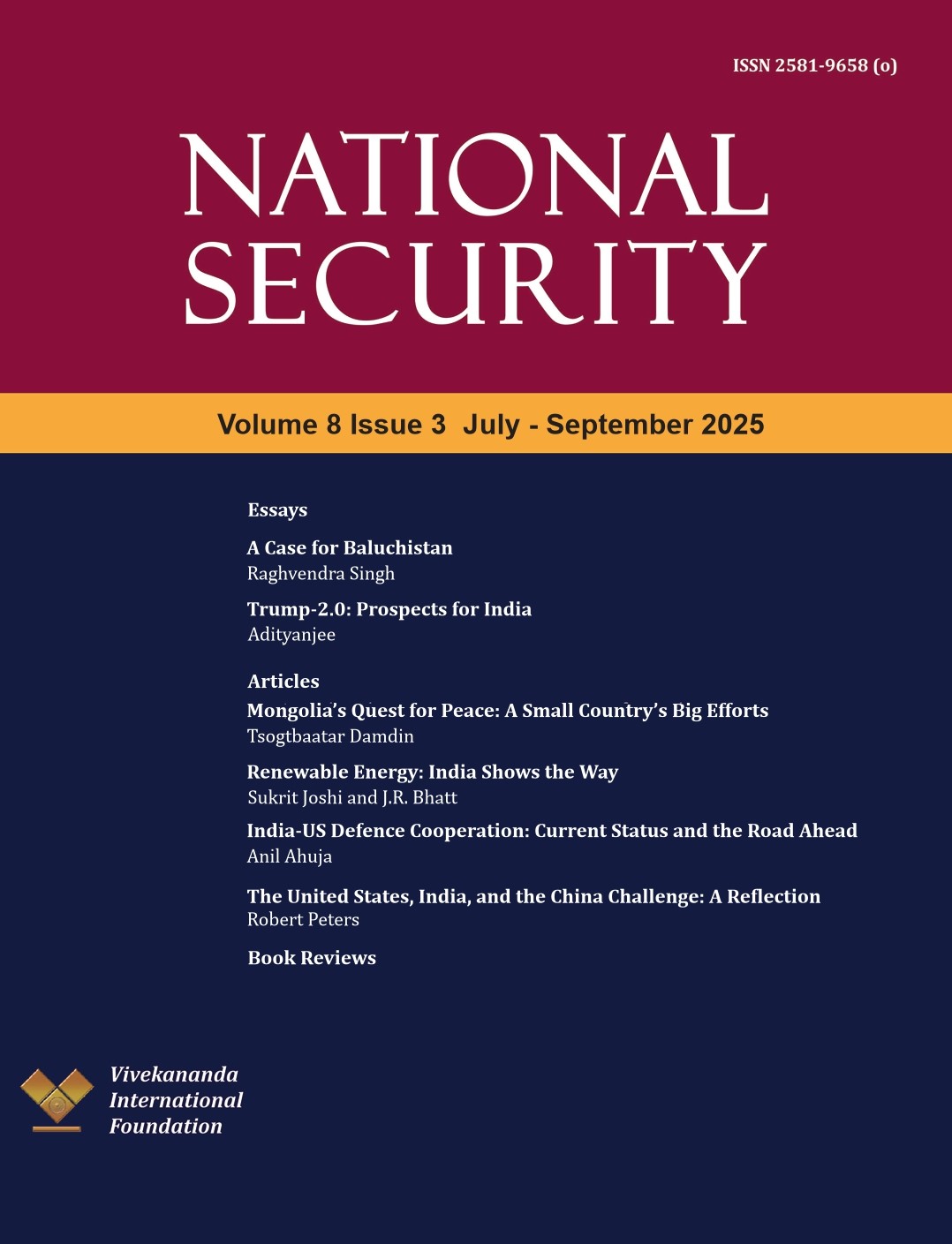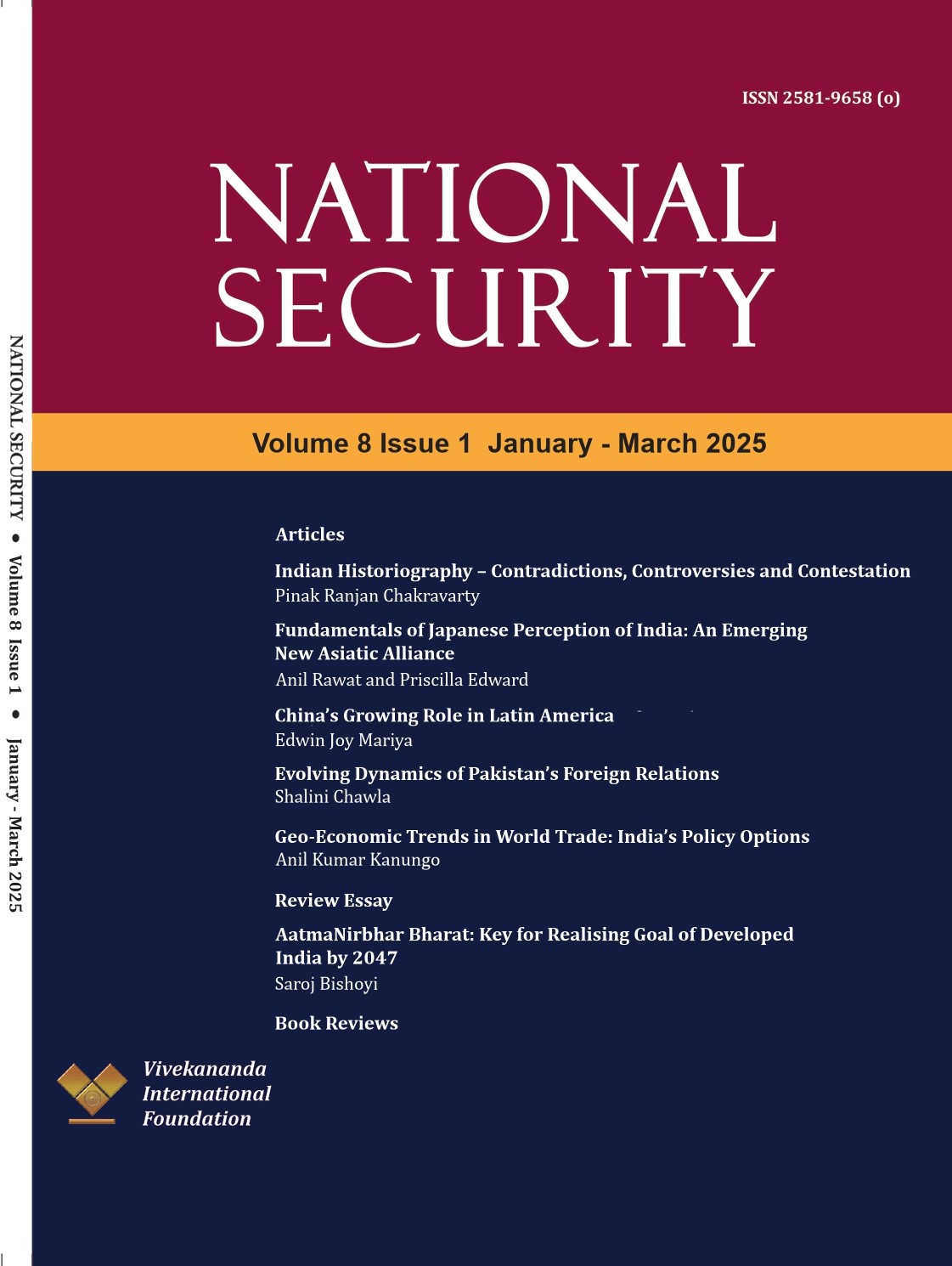National Security
Published in Association with Vivekananda International Foundation
Current Volume: 8 (2025 )
e-ISSN: 2581-9658
Periodicity: Quarterly
Month(s) of Publication: Mar, Jun, Sep & Dec
Subject: Political Science & International Affairs
DOI: 10.32381/NS
Online access is free for the Research Faculty of VIF
Domestic Politics and Foreign Policy of the Maldives: Implications for India
By : Gulbin Sultana
Page No: 98-116
Abstract
The introduction of multi-party democracy in Maldives in 2008 has provided its citizens the much-awaited political freedom, and voice to freely express their views on matters of domestic as well as foreign affairs. A multi-party system has also emerged with differing ideological postures. Consequently, one can observe a rise in partisan approach to various foreign policy issues in the post-2008 Maldives. The impact of this change has been felt in the India-Maldives bilateral relations. Friendly relations between the two countries received a setback with the anti-India sentiment and the “India Out” campaign, which can be attributed more to internal political dynamics than genuine ideological differences or hostilities with India. Deterioration of the special relations, enjoyed by the two countries, can have far-reaching implications, particularly for the Maldives. The article, therefore, argues that India should acknowledge and feel confident about its own strength, and address concerns in the bilateral relations through dialogue and engagement with all the stakeholders in Maldives rather than adopting reactive measures.
Author
Gulbin Sultana : Dr. Gulbin Sultana is an Associate Fellow with the South Asia Centre in the Manohar Parrikar Institute for Defence Studies and Analyses (MP-IDSA), New Delhi.
DOI: http://doi.org/10.32381/NS.2024.07.02.2









